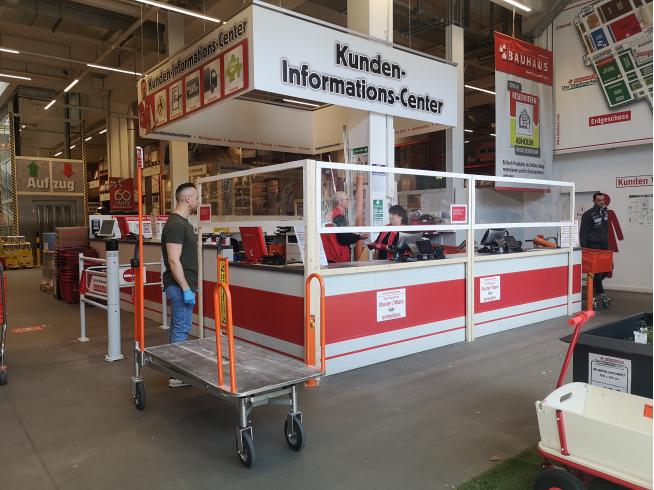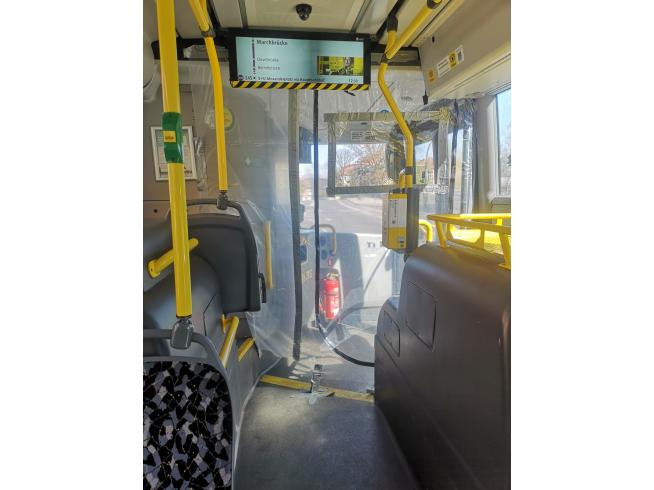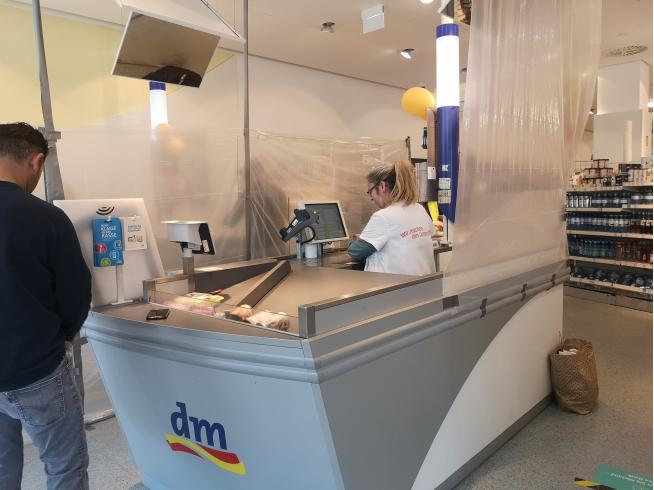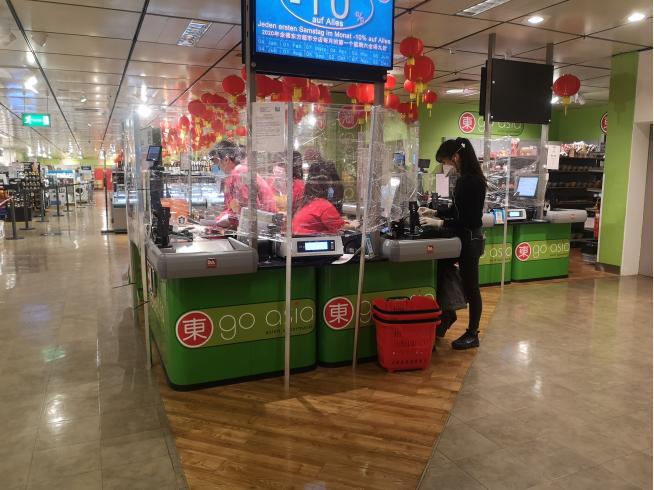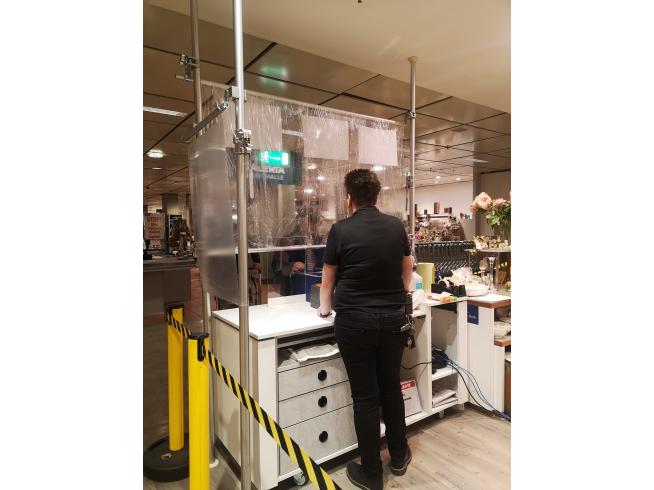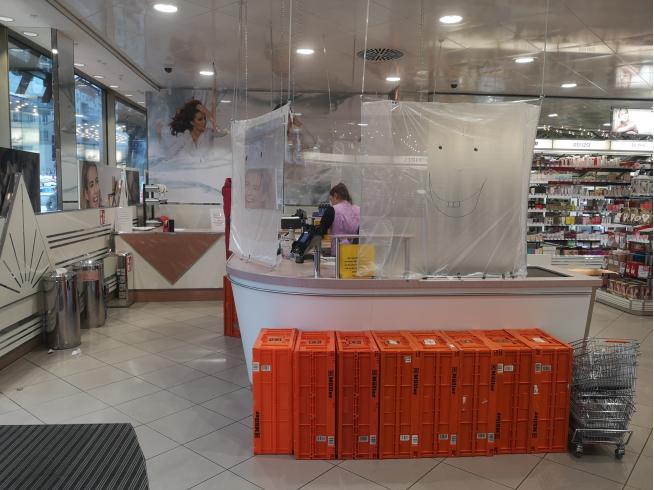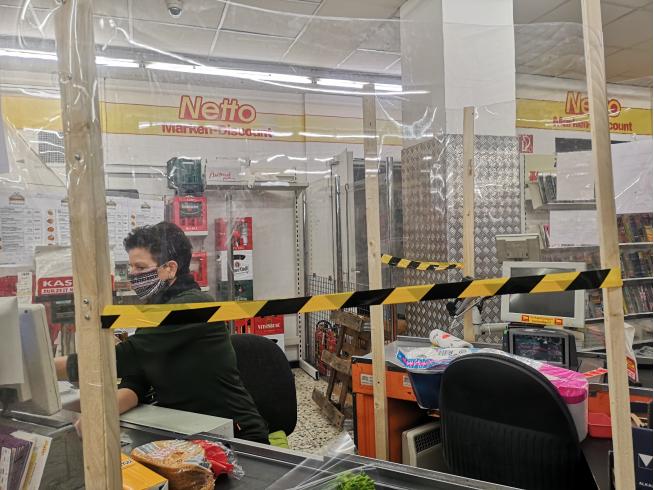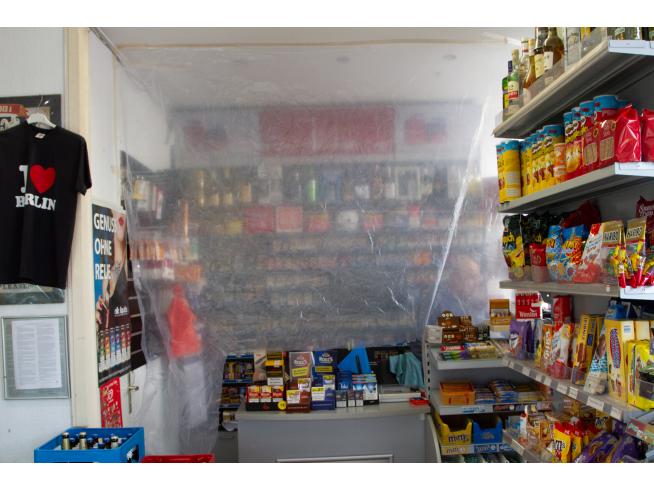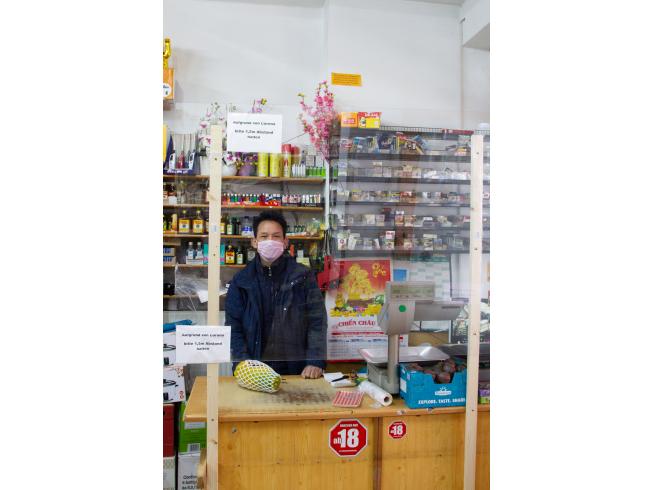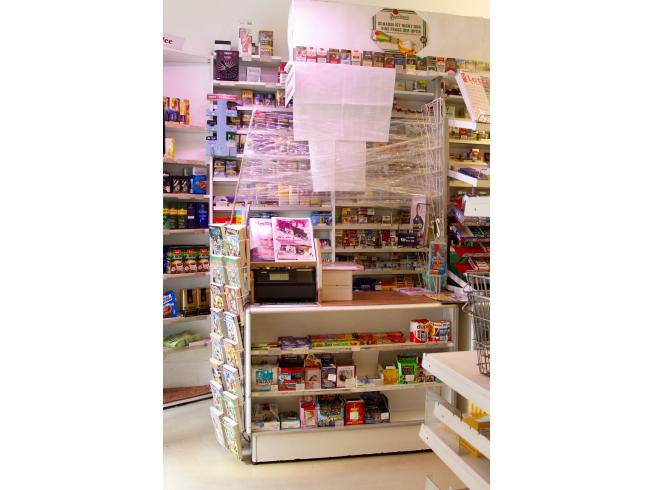The Anatomy of DIY-Objects in an Epidemic Infrastructure
The Anatomy of DIY-Objects in an Epidemic Infrastructure
A Design Criritc
Fotos und Text: Klein & Unruh mit Lena Skrabs
It is just as reasonable to represent one kind of captivity by another as it is to represent something that really exists by something that does not exist.
- Daniel Defoe
In the old days you used to come across glass window panels with a small hole to reach through in old school bank buildings, post offices and train counters. With the modern idea of service these objects became a rare encounter.
Nowadays however you could see them pop up here and there in the super market, the corner store down the street or the print shop. Almost covering the entire provision of basic supplies in society the variety of designs reaches from some more high-functioning devices in the big supermarket chains through to DIY style home-build in smaller family run stores.
In an oval shape like a riot police helmet these objects fulfil their inherent purpose in their functionality. Some made from milky acrylic glass the interaction with the person beyond the counter gets a somehow cloudy, pixilated experience. Attached to the shelf with silver lined duct tape – an all time favourite of the DIY-workmansship – or hanging on thin strings almost invisible from the ceiling this objectoriented design, with its hands-on, low-material concept, facilitates a broader key element of our ever secure environment.
In a genealogical juxtaposition the on-demand design do not have any natural voice transmission acrylic panel anymore, nor acrylic panels in aluminium frames, but rather simply a rectangular hole cut out with a Stanley knife. They are not build to hold a 16mm bullet or stop an attack with a knife. They are meant to protect from something nontangible.
A threat that is hard to grasp while opinions are updated in an instance.
The direct environment fades to design a more secure environment, the immediate surrounding has to disappear to create a secure space around everyone in everyday life.
In this on-time on-demand design object the inherent and ubiquitary belief in a secure environments in our everyday gets most visible. Describing and analysing the anatomy of a design object of this kind is casting light on the anatomy of a designed environment. This design object bypasses every professional approach and still spreads at a remarkable path through our everyday environment.
How do we encounter the world? What power is brought together by an abstraction to step in-between the fragments of our lifeenvironment? Do we feel more comfortable in secure representation of a detached everyday in our heads or are we yearning to get in-touch with it physically? The everyday is long designed before we take any action.
Die Publikation "The Anatomy of DIY Objects in an Epidemic Infrastructure" von Stefan Klein & Fred Unruh ist 2020 im Verlak erschienen.
- Daniel Defoe
In the old days you used to come across glass window panels with a small hole to reach through in old school bank buildings, post offices and train counters. With the modern idea of service these objects became a rare encounter.
Nowadays however you could see them pop up here and there in the super market, the corner store down the street or the print shop. Almost covering the entire provision of basic supplies in society the variety of designs reaches from some more high-functioning devices in the big supermarket chains through to DIY style home-build in smaller family run stores.
In an oval shape like a riot police helmet these objects fulfil their inherent purpose in their functionality. Some made from milky acrylic glass the interaction with the person beyond the counter gets a somehow cloudy, pixilated experience. Attached to the shelf with silver lined duct tape – an all time favourite of the DIY-workmansship – or hanging on thin strings almost invisible from the ceiling this objectoriented design, with its hands-on, low-material concept, facilitates a broader key element of our ever secure environment.
In a genealogical juxtaposition the on-demand design do not have any natural voice transmission acrylic panel anymore, nor acrylic panels in aluminium frames, but rather simply a rectangular hole cut out with a Stanley knife. They are not build to hold a 16mm bullet or stop an attack with a knife. They are meant to protect from something nontangible.
A threat that is hard to grasp while opinions are updated in an instance.
The direct environment fades to design a more secure environment, the immediate surrounding has to disappear to create a secure space around everyone in everyday life.
In this on-time on-demand design object the inherent and ubiquitary belief in a secure environments in our everyday gets most visible. Describing and analysing the anatomy of a design object of this kind is casting light on the anatomy of a designed environment. This design object bypasses every professional approach and still spreads at a remarkable path through our everyday environment.
How do we encounter the world? What power is brought together by an abstraction to step in-between the fragments of our lifeenvironment? Do we feel more comfortable in secure representation of a detached everyday in our heads or are we yearning to get in-touch with it physically? The everyday is long designed before we take any action.
Die Publikation "The Anatomy of DIY Objects in an Epidemic Infrastructure" von Stefan Klein & Fred Unruh ist 2020 im Verlak erschienen.
